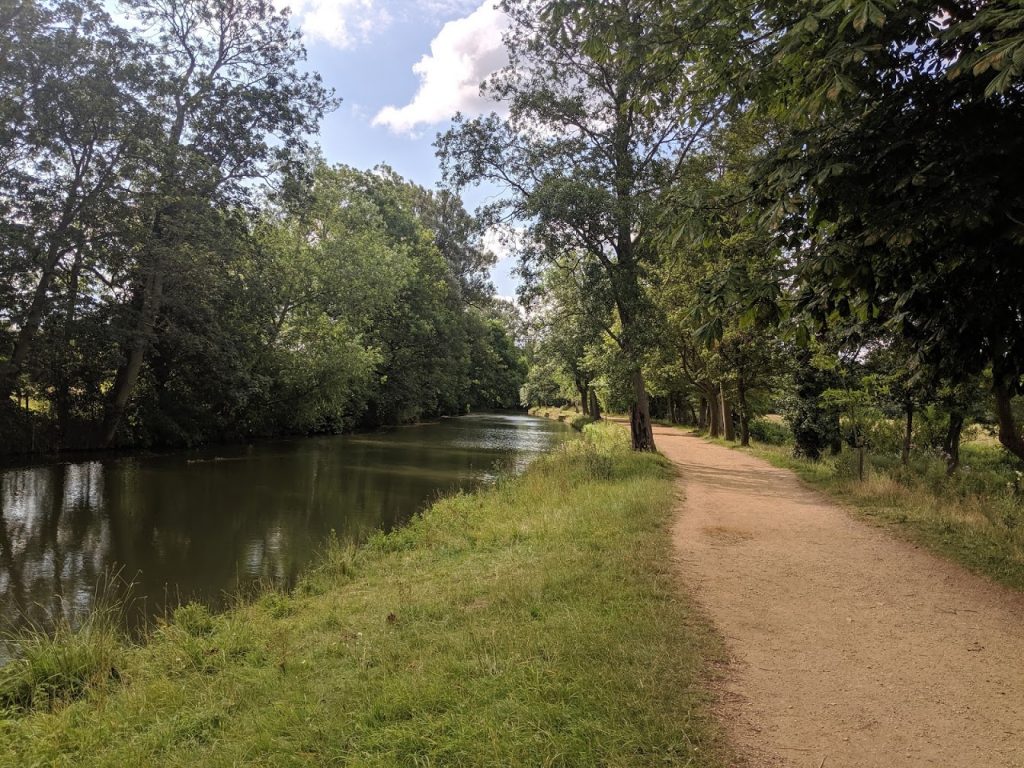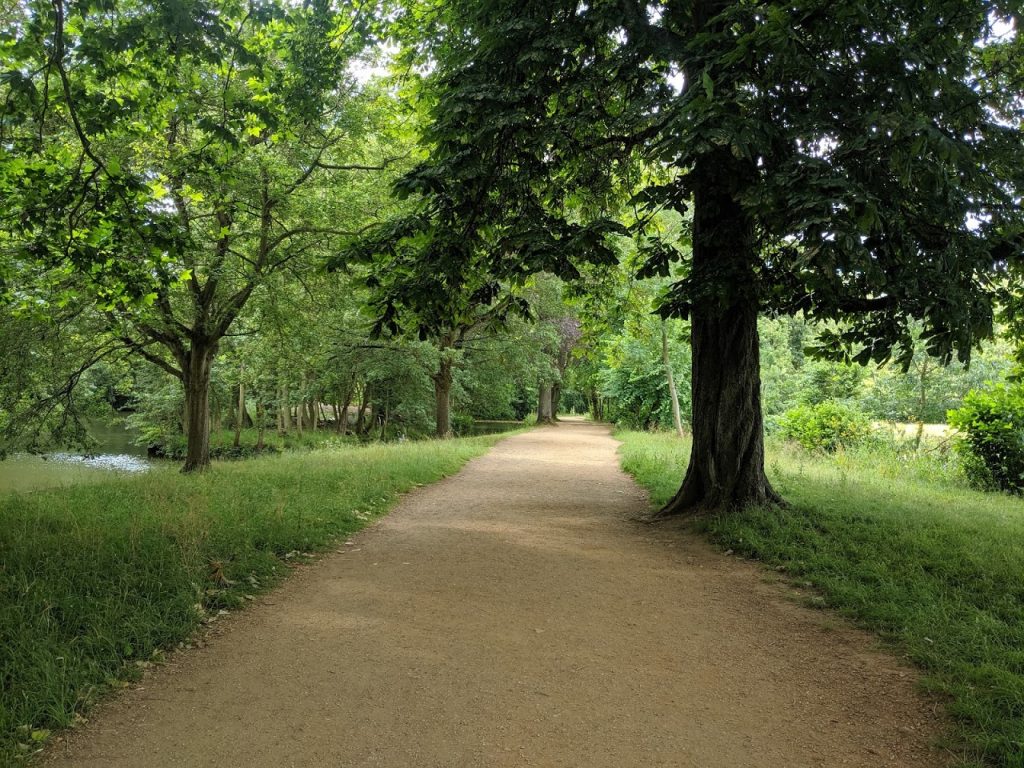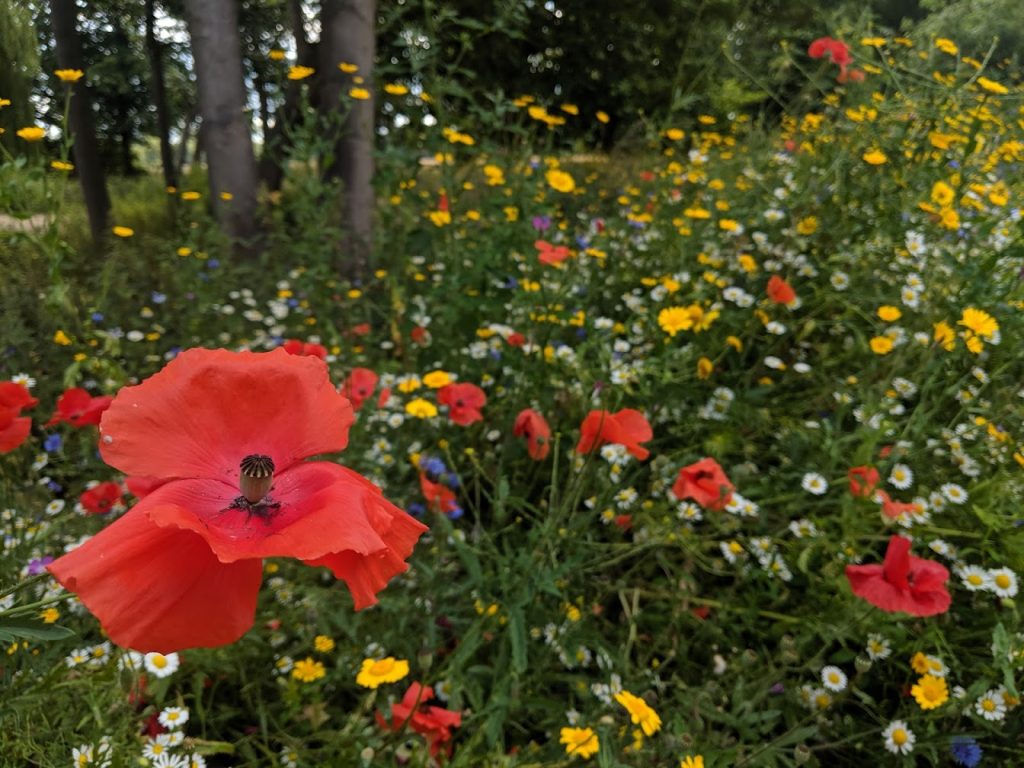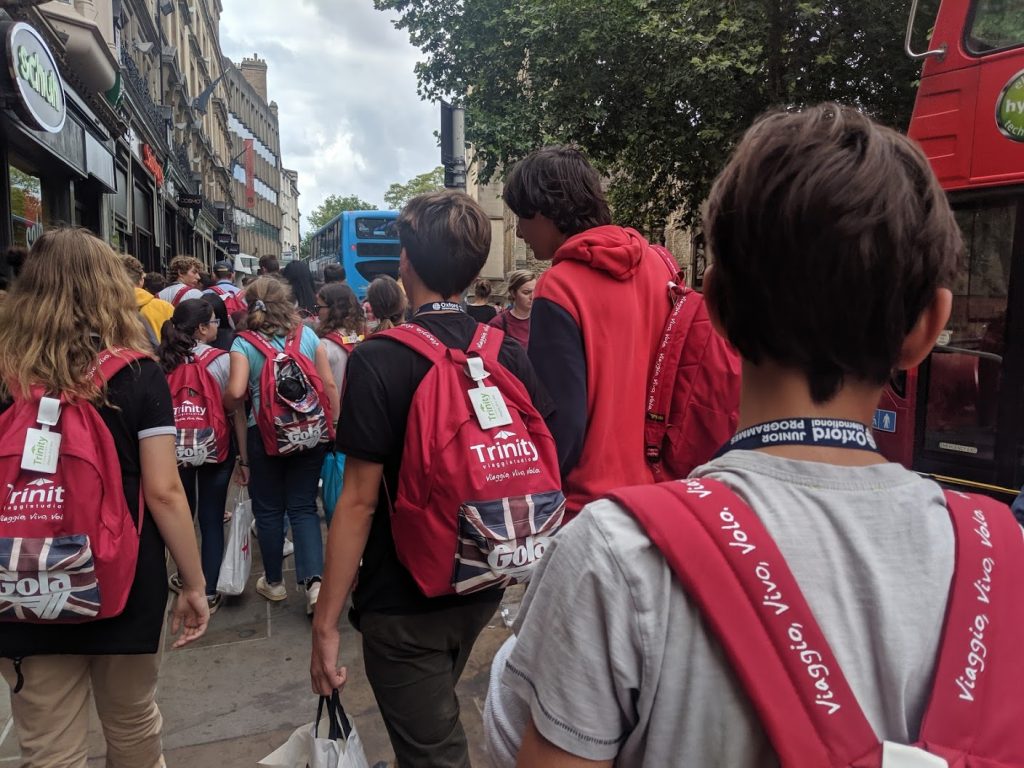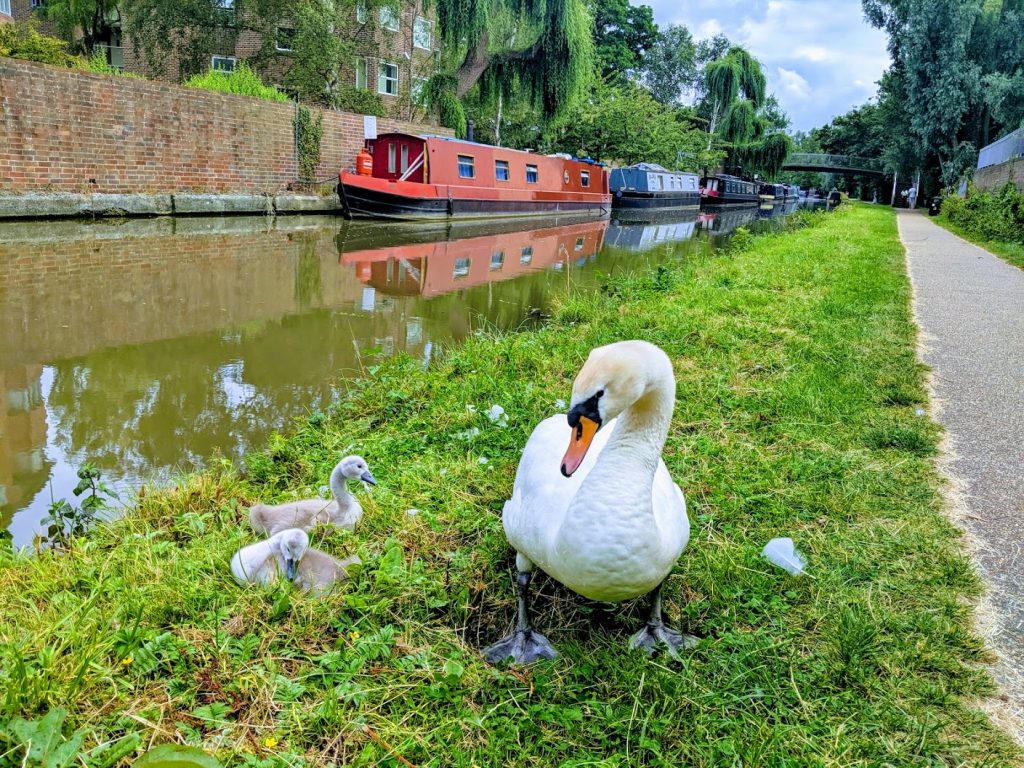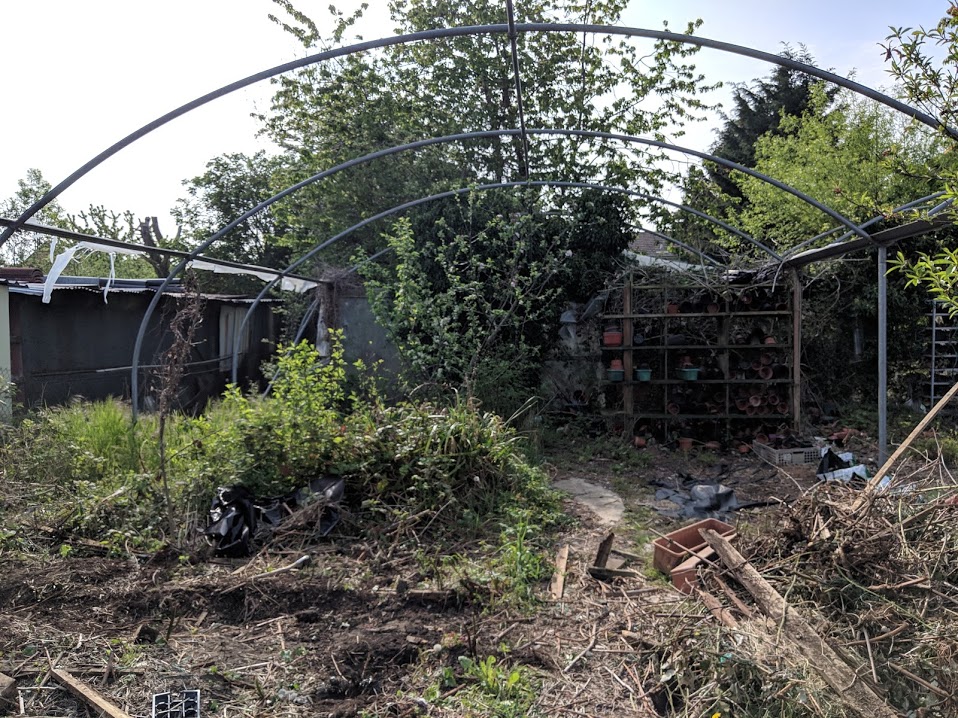Career
I’ve answered the “So what do you do?” question a couple times this week, and the answer I’ve been giving has been “I do research for a start-up that makes microscopes”. More specifically, they are super-resolution microscopes, the development of which won Eric Betzig, Stefan W. Hell, and William E. Moerner the 2014 Nobel Prize in Chemistry. If you’re feeling confident about science their lecture is a good place to gain an understanding, and if not perhaps the next few paragraphs will help out.
Nano
There is a joke amongst academics that the difference between micro and nano is more funding. The joke plays on the prefixes we use to describe units being somewhat arbitrary. We know we could just as easily refer to 100 nm as 0.1 μm, but they don’t. If you didn’t feel part of the “we”, let me try and include you:
Intuition of scale is limited to what we experience. We can demonstrate this with a thought experiment. Imagine an object (I’ll pick apples) and it is easy to visualise the difference between one, two, and ten. Similarly slicing the imaginary apple we see that a whole, half, and tenth are increasingly smaller portions. Our imagination starts to struggle as we keep adding 0s (changing the order of magnitude) to the quantity. You might picture 100 apples as a rather large pile, but not be quite so sure what 1000 or 10,000 or 100,000 or 1,000,000 apples would look like, beyond “lots”. Similarly it becomes harder to imagine how small 0.01 or 0.001 or 0.0001 of an apple is, beyond “a speck”. Unless you are really familiar with large or small quantities of apples, your intuition, like mine, probably goes from about 1/100 (a tiny bit of apple) to 1,000 (a rather large amount of apples), or 5 orders of magnitude. We could express this with the typical metric prefixes by saying 1 centiapple to 1 kiloapple.
Generally we do better with length: a human hair has a width of about 100 micrometres (sometimes called microns, the same micro that gives us microscopes), which is 0.000100 metres. The height of the world’s tallest building (the Burj Khalifa) is 830 metres, and we can probably push a little further: looking from the top of it the furthest we could see would be about 100,000 metres away. This translates into an intuition spanning 9 orders of magnitude, which is convenient as the prefix “nano” expresses being 9 orders of magnitude smaller than the unit length. In this example the number of hairs you could fit side-by-side along 100 km is the number of nanometres in one metre. This number is more commonly called a billion, which Neil deGrasse Tyson plays with in this video. So “nano” is just a shorthand used to quickly get us down to a very small scale. You can explore that more in these two visualisations (I highly recommend you do).
The reason that nano is so exciting is that two important processes happen on that scale, and both allow you to be reading this blog. The first is that the fundamental building block of the computer, the transistor, can be fabricated on the nanometre scale. The second is the fundamental building block of you, cells and their constituent proteins and DNA, exist on the nanometer scale. We typically measure the width of individual atoms in the unit “ångströms”, which is 0.1 nanometers, and so an understanding at the nanoscale is an understanding of physical space at the smallest scale that “structure” (as we typically mean it) make sense. Smaller than the nanometer, we enter the entirely unintutive world of quantum. So, a complete mastery over the nano-scale would translate into a mastery over biology and materials science, going well beyond what current science fiction and futurism could suggest. To work at that scale requires a way to see what is going on, and super-resolution microscopy is one such way of looking.
Lessons from Failing: Potential vs Effort
Last week I wrote a little about failing. It would be painful and unhelpful to revisit my failures every week, but I do hope sharing might prevent someone repeating the mistakes. At a minimum, by consolidating my thoughts publicly I prevent my tendency to avoid asking for help.
Working through my own failing, Angela Duckworth’s book “Grit” was particularly helpful. A major theme is that our culture celebrates talent instead of the hard work that goes into achievement, when the effort is more significant. I suspect I was particularly vulnerable to glorifying potential (in my case I called it intelligence) because as a child I was told I was intelligent, and that became core to my identity. In turn I came to believe I shouldn’t need to work hard, because “innate” intelligence should be effortless. In fact if you hear “young Nick works really hard”, you might quietly assume focus is being drawn to effort because of a lack of talent which would be needed to achieve. It is very satisfying to think about all the opportunities talent might bring, but all the opportunities in the world are meaningless if there is no application towards any one of them.
In defeating this belief as a mathematics tutor I used the example of genetic potential for athletic feats. Often you hear children (and adults) proclaim (sadly with pride) that they are “bad at maths”. As if they somehow lack the biological machinery to do sums. The problem is they experience a false comparison, between themselves and those who have been consistently applying effort over time. It is easy to assume talent is what explains achievement when the effort is so rarely public and further hidden by being spread little by little over a long time. Compare the more intuitive idea that an obese person is not necessarily “bad at running”, but severely under-trained. They may have the genetics to set a world record, but if they turn up to the track as they are the results would suggest they are incapable of performing. Moreover if they try and perform at the level of those who turn up week in, week out, it will be a physically painful and socially humiliating experience. It is only through consistent training, gradually moving through incremental progress, that we can see underlying talent. More than that, outside of the most competitive arenas it is training rather than genetic talent that makes all the difference to performance. I feel it is also worth noting here, though it doesn’t fit quite so well, that it is setting out to make small amounts of progress and achieving it that snowballs into love of an activity. If the bar is set unattainably high, the positive reinforcement, and pleasure, from succeeding does not occur and motivation eventually collapses.
In short, in a culture where we celebrate the smartest, the fastest, or your other superlative of choice, it is important to realise that actual success in life is not about having the most potential, but it is about what you do with however much you have.
Structure
It was pointed out that this blog lacks structure and/or cohesion. At the moment the main “goal” is to create content, largely to refine my own thinking and share it with friends, family, and colleagues. To that end the unifying theme has been merely “what have I been thinking about this week”. Eventually a more meaningful structure may evolve, or I may consolidate topics spread over several weeks into a more structured format or section, but for now take it as the digital equivalent to sitting down with me over a beverage of choice and having a chat.
Writing from the Clarendon Laboratory, Oxford

